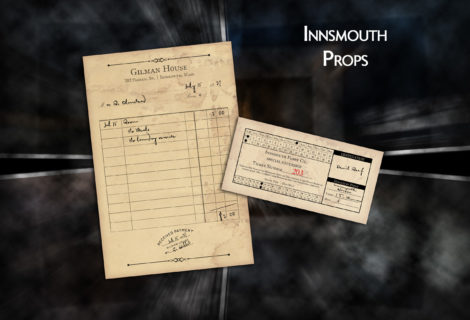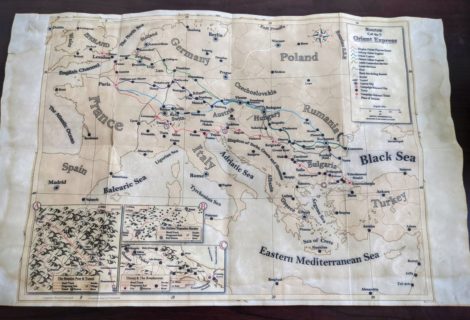One Among Many: Choosing a System – Part 3
In Part 2 I looked at some of the big name mythos roleplaying games out there and briefly discussed a few reasons I’m not just playing them. Of course, those are not the only mythos RPGs available – it’s actually a very good time to be alive if you’re into mythos gaming. However, most smaller or indie roleplaying games these days tend to focus on minimal rules and/or a very shared authorship/narrativist style of game. That’s not what I’m after. It’s quite possible there’s a mythos RPG out there that’s actually fairly close to my personal preferences when it comes to system and setting, but I haven’t come across it. More importantly, I’m after something more than just a roleplaying game.
Why not just add components and a few custom rules to one of these games?
The next question that arises is why I don’t just add a few house rules and some play aids or props to one of these games. In actuality, I am going to end up just adapting an existing roleplaying system, but I’m envisioning something more than just playing a roleplaying game with a few house rules. Now, I do want to be able to play mythos scenarios using a typical roleplaying approach, but I don’t want that to be my only option. I want to be able to speed up or simplify play as necessary, and I want to be able to slow things down and delve into the details when it suits my purpose. And I want to make those adjustments on the fly, as things develop at the table. I also want to incorporate other gameplay elements that might seem downright foreign to a traditional RPG but nevertheless can bring something to the experience.
Over the years I have learned that when it comes to any situation or event in a tabletop game, there are always a variety of ways you can handle that event mechanically. Each approach brings with it a set of advantages and disadvantages when it comes to simplicity, detail, ease, time, etc. It all depends on what you’re trying to accomplish and what’s going to work best at your table. Now there are certainly systems out there that provide a wealth of options for dealing with any situation that may arise in play, but many of them do so by having an increasingly large assortment of rules that are intended to encompass different circumstances. Especially when it comes to playing with my family, I prefer a system that can be used to support a wide variety of in-game events and actions without having to resort to dozens of individual situation-specific rules – a system whose basic mechanics can be applied flexibly and powerfully enough to provide a fine level of detail without being cumbersome.
After working on my previous project I believe I came across such a system in Fate Core.
What? Not that system!
While my overriding goal is to play this game with my family, I have a natural tendency to write and develop for a wider audience. In other words, I’d love to be able to share what I come up with with others. One of my biggest concerns with all of this so far is the possible reaction to my using Fate Core. So let me say this: This will not be Fate Core as you know it!
Actually, I’m not sure whether to expect a stronger reaction from people that are opposed to all Fate systems or from members of the Fate community. One group may just declare “It’s got Fate in it. I’m not going anywhere near it!” and the other may jump to “That’s not Fate! You’re doing it wrong!” Oh well. I’ve got my reasons – and they’re coming in Part 4.






Trackbacks for this post